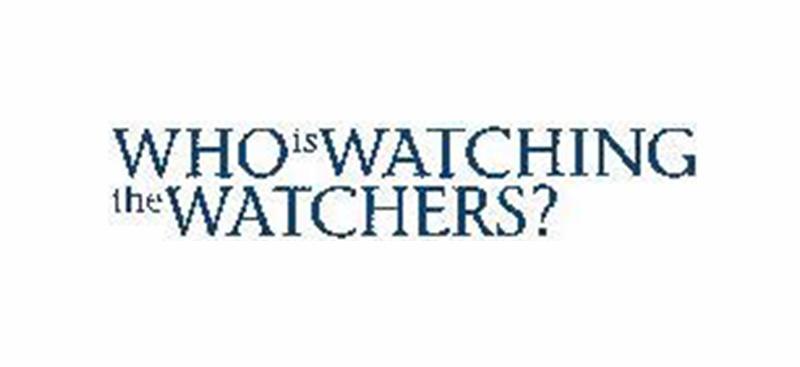
Who is Watching the Watchers?
On seven women were: detained by police in Guelph, allegedly for breaching the public peace. The women had been participating in a protest organized by local teachers against the education policies of the Mike Harris government. They were taken to the local police station and then transferred to the Wel l ington Detent ion Centre. At the centre, they were strip-searched, a well-known and standard procedure for anyone sent there. Hours later, the women were released.
After local authorities rebuffed its repeated calls for an independent report, the Canadian Civil Liberties Association (COLA) helped the women file complaints against the Guelph Police. Having first dismissed the complaints for being too late (they were filed two weeks into the period during which a chief has the discretion to accept "late" complaints), the Guelph Chief, Lenna Bradburn dismissed the guts of the matter again. While Bradburn acknowledged that the service could do better in providing prisoners with information about their legal rights, she ruled that there was no evidence of police misconduct in the decision to transfer the women to the strip-search facility.
CCLA then asked the Ontario Civilian Commission on Police Services (OCCPS) to review Bradburn's findings.
"Bradburn has done nothing to allay suspicion that the movement of the seven female protesters from the city police station to the local detention centre was designed to send a strong message to the women," said Alan Borovoy, the association's general counsel. "The police have not explained why the women, arrested in early evening and held on breach of peace charges until just after midnight, could not have been kept in a common area, such as the police gymnasium," said Borovoy.
Freddie Potvin, the last of the stripsearch seven to be arrested, told the Guelph Mercury that the police response to the complainants left many unanswered questions. "We are still waiting for the police to admit they had made a mistake sending us to the detention centre instead of making arrangements at the police station, or sending us home," she said.
While its April 2000 ruling did not go entirely against the complainants, OCCPS simply dismissed the women's complaints about their transfer and strip search. No reasons were given.
Since these events, the CCLA has persisted in pursuing justice for the women, winning battles with OCCPS at the Ontario Divisional Court and the Court of Appeal. As a result, officers involved in the transfer decision were to face disciplinary hearings. "Unfortunately, the process has been so drawn out we are doubtful of a satisfactory resolution," said Stephen McCammon, the association's associate counsel. "Under the current system, police investigate police. And, in the words of the Court of Appeal, the authorities handling of the matter was "patently unreasonable." After more than six years of struggle, two of the three police officers in question have retired from the force. And the only officer facing possible discipline is being tried by a police officer."
In response to this and other issues, the CCLA is taking a broad approach to the protection of civil liberties. On January 28, 2004, McCammon was part of a CCLA delegation that appeared before Ontario's Minister of Community Safety and Correctional Services, Monte Kwinter. Their presentation called on the government to strengthen Ontario's police complaints legislation.
"Enacting fair legislation is the best way to reduce the odds that others will endure the sort of indignity the strip-search seven endured," said McCammon.
The CCLA is also concerned with protecting civil liberties across Canada. In October, 2003, it submitted a brief to the Solicitor General of Canada, Wayne Easter. That brief called for the creation of an agency, independent of the government and the RCMP, empowered to conduct on-going audits of, and reports on, the RCMP's use of the new anti-terrorist legislation.
"We have to find a balance between our security and the protection of our human rights. At the moment, these watchers aren't being watched. It is vital that those responsible for our security are accountable for their actions," said McCammon.
At the 2003 Annual Meeting, Dave Krook, president, ETFO Upper Grand, called on ETFO to support the strip-search seven and the Canadian Civil Liberties Association. Individuals wishing to support the CCLA's efforts can join the organization by visiting its web site www.ccla.org/us/. The Canadian Civil Liberties Education Trust offers education programs for schools. Visit www.cda.org/schools